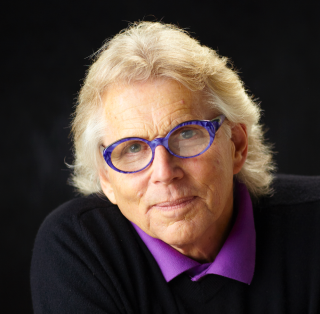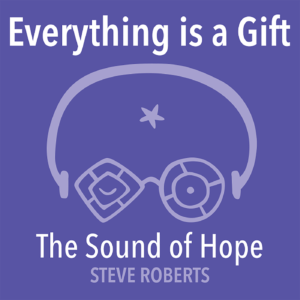What benefits might one enjoy by working with you?
- The umbrella benefit is growing your ability to take action with confidence that the action you’re taking is the healthiest choice for you in that moment. This, in my view, is a core aspiration of every person.
- To understand and employ the three questions that create that confidence: What am I trying to accomplish that I can control? What’s the problem I’m trying to solve? How would I know a healthy solution if I saw one? The meaning of these questions as I use them is far beyond any traditional paradigm I’ve encountered.
What are some of the benefits under that umbrella?
- To become someone to whom others can turn for acceptance, understanding and useful perspective no matter the situation they are facing in their life.
- To discover what, for you, are the questions you must have useful answers to in order to have the life you want––and what your best answers are to those questions, and how to employ those answers in the moment.
- To be guided with kindness to tell to a sympathetic ear the story of your life as you wish to express it. The result is a deeper appreciation for how both gifts and challenges have contributed to the richness, beauty and dignity of who you are. The experience can be transforming.
- To reframe any situation from an ever-bigger view.
- To engage the four practices that are indispensable for the health of any person or institution: managing fear; learning from our experience; growing an ever-deeper understanding of what is essential (what we cannot live without); aligning commitments with action and action with commitments.
- To effectively manage oneself in the midst of conflict and chaos.
- To spend time with someone who does not hold other people or outside circumstances responsible for his well-being, and feels that the purpose of every experience is, ultimately, to help us grow our capacity to love.
- To continually grow your ability to identify the most meaningful action to take next.
- To laugh a lot.
Are there any special worldly skills that enrich what you offer?
Visionary, strategist, creative director, writer––these are all hats I’ve worn and roles I’ve played serving individuals and organizations representing a pretty diverse mix of human enterprise over almost 40 years. I’m adept at creating an appropriate identity for an individual or institution, as well as communication that aspires to be arresting, emotionally powerful, meaningful and memorable.
With whom do you work?
Anyone with an honest desire to explore whatever comes their way from the largest possible perspective. But I prefer to call it play. “Work,” to me, connotes something dense and serious, and thus less useful when the goal of life, as I understand it, is to take whatever is in front of us and create beauty: something that contributes to our own understanding and the world’s well-being. No matter how challenging, how painful, or how much is at stake, the attempt to act with a kind and generous heart is at the core of any healthy response. And that can occur only with a certain lightness of heart, which includes humor, compassion, forgiveness, and calm when things get messy. All are the rewards of play.
How about those in positions of formal leadership?
Absolutely. Perhaps especially. Since they hold the sacred responsibility of being a role model of health, as well as defining reality for their organization: the worldly identity we aspire to; the benefit we promise those we serve; the rewards to colleagues of being a member of this community; the principles and practices we cherish; et cetera. Helping them define that reality for themselves, and live it as an example to those they serve, is a privilege I welcome.
What are some of the ways those who would play with you might characterize their needs?
- There is a deeper part of me that I would like more access to.
- I want to always be developing a perspective that can help me, and those I serve, take healthy action, especially in times of great adversity or heartbreak.
- I want to use every life experience well.
- I get in my own way too much. I want to understand it, and change it.
- I want to identify and champion a noble aspiration for myself and my colleagues, regardless of the fear such a commitment can naturally bring forward.
- I want to feel I’m giving something my best shot, not just putting in a lot of effort—infatuated with my brains and the approval of others.
- I want to overcome my aversion to conflict.
- I want to be a solid, loving force for those I serve.
- I want to operate more and more outside the bounds of what’s comfortable for me.
- I want to die as unafraid as I can possibly be.
- I want to have a voice in my world equal to the strength of my ideas.
- I want, and need, in my life a kind-hearted sounding board who thinks more expansively than I do.
Are you a coach?
I don’t think of myself in that way. I’m a teacher. I have a rather well-defined point of view, yet one that’s always expanding. I’ve been cultivating it since early childhood. It’s based on timeless principles of well-being. I have an opinion of the key questions one will find useful to answer for oneself to develop confidence in one’s decisions––and how to go about exploring those questions. I also offer where I am in my own discovery of answers––and how those answers might apply to those I serve. The result is a perspective against which others can shape their own framework for living the healthiest life they can.
Do you tell people what to do?
I certainly hope not. I’m not shy about saying this is what I would do if I were in your shoes, and why. But it’s hard to imagine the circumstance in which I would say here’s what you should do. I’m more inclined to share what has broken my heart, or what inspires me, and how I’ve learned from it.
You prefer the word “play”. Don’t you think hard work is a virtue?
No, actually. The willingness to work hard is a virtue. The ability to work hard is a virtue. Knowing when hard work is required is a virtue. But how many of us don’t know how to do anything but work hard? That’s fine for machines, but rather limiting for a human being.
How would you characterize yourself?
Since birth, so far as I can tell, my passion has been to understand and experience “What’s going on?” in the largest sense of that question. I have found the spirit of the universe to be playful, loving and deep. My life is an attempt to live in that spirit. By deep I mean there are universal principles at play. For instance, from Carl Jung: “Your vision will become clear only when you look into your heart. Who looks outside, dreams. Who looks inside, awakens.” Working in harmony with abiding principles like this is key to having a healthy life or building a healthy enterprise. My service is helping others cultivate that harmony.
In addition to one-on-one relationships, are there other in-person services you offer?
I’m happy to talk in just about any venue this side of a firing squad. And I’m willing to entertain participating in any forum in which my perspective might be useful. Identifying those questions to which good answers are vital to our well-being, for instance. Or, exploring what health is for any person or institution, and the practices necessary to achieve it. Feel free to suggest something.
What’s the most important thing you’ve learned in this lifetime?
How we define our world creates our world.
Where did you go to college?
Amherst. At 27, I was the oldest freshman Amherst had ever admitted.





